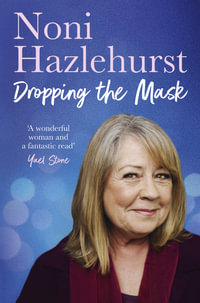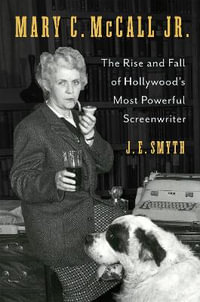The director of classic films such as Sylvia Scarlett, The Philadelphia Story, Gaslight, Adam's Rib, A Star Is Born, and My Fair Lady, George Cukor is widely admired but often misunderstood. Reductively stereotyped in his time as a "woman's director"-a thinly veiled, disparaging code for "gay"-he brilliantly directed a wide range of iconic actors and actresses, including Cary Grant, Greta Garbo, Spencer Tracy, Joan Crawford, Marilyn Monroe, and Maggie Smith. As Katharine Hepburn, the star of ten Cukor films, told the director, "All the people in your pictures are as goddamned good as they can possibly be, and that's your stamp."
In this groundbreaking, lavishly illustrated critical study, Joseph McBride provides insightful and revealing essayistic portraits of Cukor's actors in their most memorable roles. The queer filmmaker gravitated to socially adventurous, subversively rule-breaking, audacious dreamers who are often sexually transgressive and gender fluid in ways that seem strikingly modern today. McBride shows that Cukor's seemingly self-effacing body of work is characterized by a discreet way of channeling his feelings through his actors. He expertly cajoled actors, usually gently but sometimes with bracing harshness, to delve deeply into emotional areas they tended to keep safely hidden. Cukor's wry wit, his keen sense of psychological and social observation, his charm and irony, and his toughness and resilience kept him active for more than five decades in Hollywood. George Cukor's People gives him the in-depth, multifaceted examination his rich achievement deserves.
Industry Reviews
For too long, Cukor's reputation has been as a studio-bound "woman's director." Au contraire, as McBride shows us in his definitive study, which combines personal reminiscences of Cukor with a masterly analysis of his films, Cukor was an adventurous and modern filmmaker-plumbing depths in stories and performances, always visually resourceful and imaginative. -- Patrick McGilligan, author of George Cukor: A Double Life
This is one of the best books in McBride's distinguished career, and a book that Cukor has long deserved. Critics have often described Cukor as an "actor's director," but nobody has done so much as McBride to analyze what the term means. He is a first-rate critic-sensitive, forthright, and eloquent. -- James Naremore, author of Some Versions of Cary Grant
Joseph McBride is a natural resource, one whose unique approach to film analysis combines first-person witness, deep study into the context and history of the Hollywood production system, an uncanny somatic recall for the details and essence of a director's mise-en-scene, may be easy by now to take for granted: of course, one thinks, McBride has turned his embracing attention to Cukor, as he has in the past to Welles, Ford, Lubitsch, et al. But we shouldn't take it for granted. Here, his keen and affectionate "actors-first" approach to his subject echoes Cukor's own elusive, sensitive style, forming a portrait made of portraits of others. As ever with McBride, you'll be driven to seek out films you've never even wondered about, and to reencounter others which you recall only as passing dreams. -- Jonathan Lethem, author of Brooklyn Crime Novel
An enticing idea-examining the work of a pantheon director through the iconic performances that adorn his films-is dazzlingly manifested here by singular film historian Joseph McBride. McBride's fresh take on George Cukor gifts us with lively looks at his work with actors both celebrated (Katharine Hepburn, Spencer Tracy, James Stewart, Cary Grant, Marilyn Monroe) and less so (Lew Ayres, Fredric March, Hattie McDaniel). And he reminds us that Cukor-too often dismissed as tasteful, amusing, but lightweight-was in fact an artist of extraordinary depth, virtuosity, and understanding. -- Julie Kirgo, essayist and film historian
























